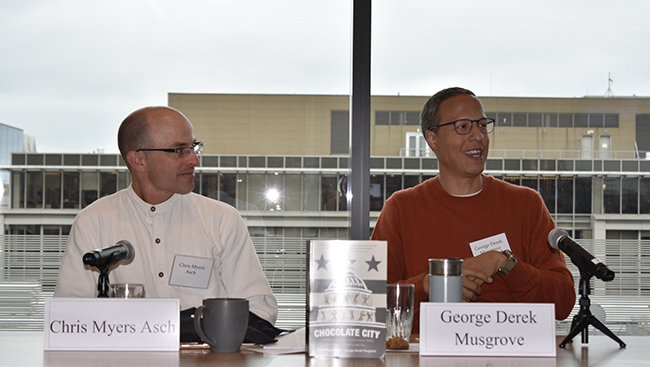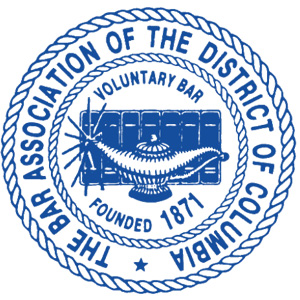Barbara E. Whiting-Wright, 83, Leaves Behind Legacy of Mentoring Generations of Black Women Attorneys
November 26, 2019
When respected attorney and advocate Barbara Evon Whiting-Wright passed away on November 7, 2019, the impact of the loss was felt across the region among the legions of African American women attorneys she counseled and championed over the last 40 years as their beloved confidante and mentor. Whiting-Wright, 83, held the distinction of being the first black woman to serve as customs law specialist at the U.S. Customs Service, where she began her legal career in 1964.
“She affected the lives of countless numbers of young women, but also young people more generally through her work,” says Kathryn A. Ellis, an assistant general counsel at the U.S. Department of Education. “She had taken so many young people under her wing. When you have a servant-leader perspective as she did, it permeates and touches every aspect of your life. She was just hot-wired that way.”
In 1974, Whiting-Wright cofounded and served as the first president of the pioneering Greater Washington Area Chapter (GWAC), Women Lawyers Division, of the National Bar Association. She also founded the GWAC Foundation and served on its board for decades.
“Miss Barbara realized very early on the importance of creating a space that could propel other young black women lawyers through, over, and around the very strategically placed roadblocks in our careers,” says Brandes S.G. Ash, an attorney with the Burr Law Firm and vice chair of the GWAC Foundation. “She wanted us to feel it in our souls that we, too, deserve the very best and a seat at the table.”
Friends say Whiting-Wright was a potent mix of fortitude, intelligence, and passion. She continually hurdled barriers in striving for equality in the legal community. She also understood the isolation that comes with being a trailblazer, having been the only woman in her graduating class of 1963 at Howard University Law School.
“She touched so many lives, young and old,” says Valencia Rainey, senior advisor to the general counsel at the National Endowment for the Arts. “She was such a mentor and trailblazer. It was important to her that younger attorneys know the history of black women lawyers and know on whose shoulders they stand.”
Even in the weeks before her death, Whiting-Wright was still texting and calling people about donations and preparations for GWAC’s Annual Holiday Brunch in December, never giving an inkling of the seriousness of her illness. Whiting-Wright died of colon cancer at Howard University Hospital.
“I always think of her as the first one there and the last one to leave. She had more energy than anyone to make sure the event or appeal was a success,” says Meredith P. Graves, a senior analyst with the U.S. Government Accountability Office. “She did so without any expectation of any accolade. It was who she was to her core.”
Whiting-Wright had a lifelong association with Howard University. During law school, she worked in the office of the chief medical examiner at the hospital when it was known as the Freedmen’s Hospital. She was an active member of the law school’s alumni association and incorporated its Alumni Dinner Committee Scholarship Fund.
Her community commitments were many. She had a number of advisory roles in Washington, including an appointment to the District of Columbia’s Public Employee Relations Board. She was a member of The Moles, a national black women’s club; was a Big Sister; and mentored and taught at the Florence Crittenton Home for pregnant teenage girls.
“She met you where you were at and then pulled you up,” says Alicia M. McNeal, a pro bono attorney and a GWAC Foundation board member. “She wanted you to benefit from what she had learned and what she knew.”
Whiting-Wright believed in the power of a good meal or a delicious pound cake to bring people together and start the negotiating process — or ease the healing process. A legendary amateur baker and gourmet cook, Whiting-Wright was devoted to her family, especially her son, noted actor Jeffrey Wright, and her beloved grandchildren, Elijah and Juno Wright.
An avid sports fan, Whiting-Wright was a Washington Mystics season ticketholder starting with the team’s inaugural season and a Washington Redskins season ticketholder since 1971. Her passion for sports, in part, came from her father, William “Boo” Henry Whiting Sr., a highly regarded pitcher with the all-Negro Seaford (Virginia) Saints.
Several weeks before her death, Whiting-Wright was on the phone with Maryam Hatcher, president of GWAC, discussing the annual brunch where Whiting-Wright was to be honored for her decades-long contributions to GWAC and the GWAC Foundation.
“At the end of the conversation, and I had no idea it was the last time I’d speak with her, I thanked her for doing so very much to help my generation of lawyers and women,” says Hatcher, who is counsel for the American Petroleum Institute. “And she said, ‘you don’t have to thank me; that’s what I’m supposed to do.’”





